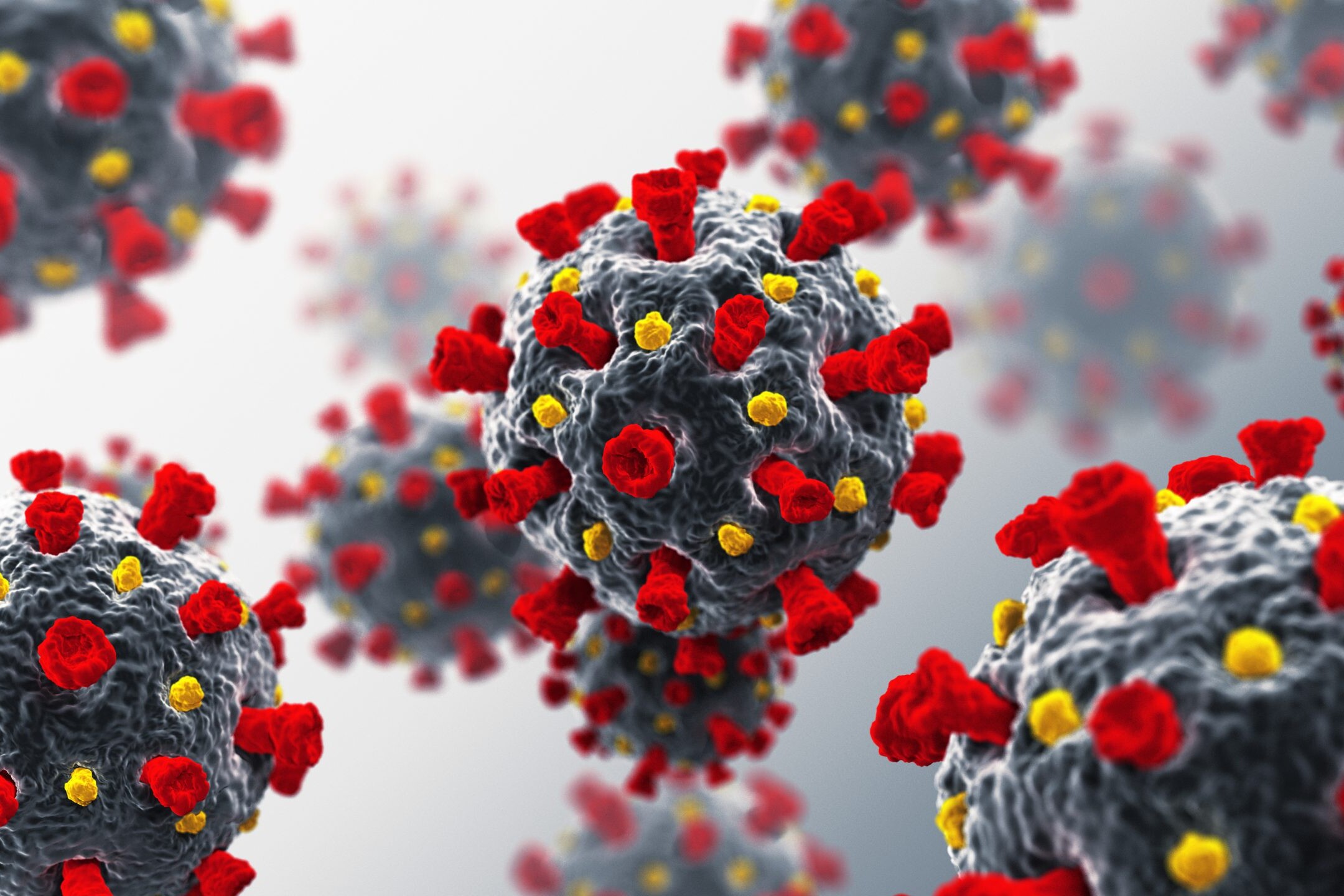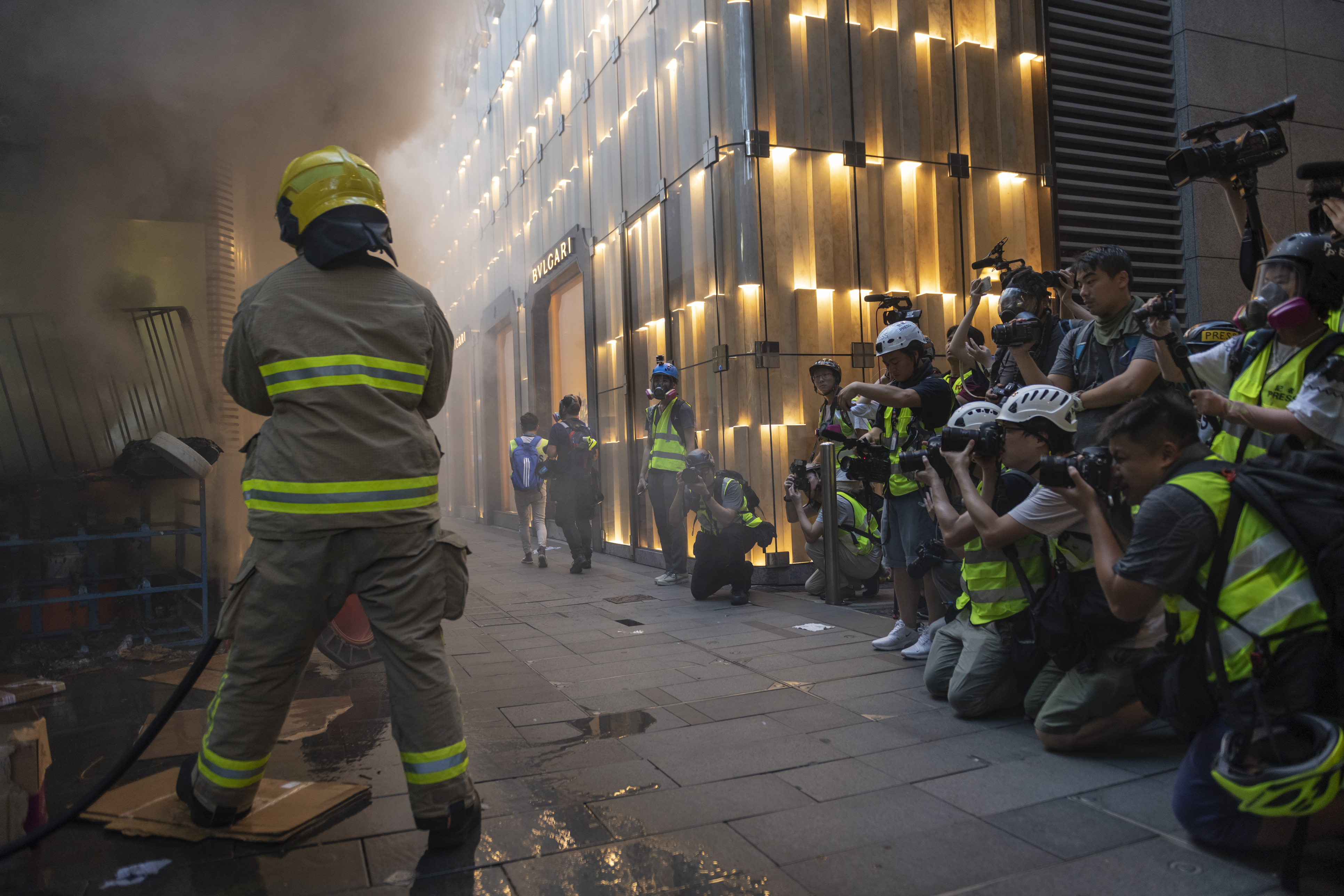The Chinese government’s new National Security Law for Hong Kong has serious implications for independent journalism.
The new law, which targets secession, subversion, terrorism and collusion with foreign forces, went into effect in late June and has already been used as a pretence to silence critical voices and stifle freedom of the press, which is meant to be guaranteed under the “one country, two systems principle”.
The law is also widely seen as a means to crackdown on pro-democracy protests. So far, a number of opposition politicians have been disqualified, books have been purged from libraries and people arrested for social media posts. The law holds a maximum sentence of life imprisonment and the potential for suspects to be tried in the Chinese mainland. Its lack of clarity engenders self-censorship among journalists, activists and the broader public alike.
Just last week, the law was deployed in its most high-profile case to date, with the arrest of the tycoon and Apple Daily owner, Jimmy Lai, on suspicion of “colluding with foreign forces”. Apple Daily is one of Hong Kong’s most widely read, pro-democracy newspapers.
The arrest on 10 August was accompanied by a raid on the outlet’s headquarters by hundreds of police and the further arrest of nine other activists and media figures, according to BBC News. RSF reported that journalists were blocked from entering the newsroom and major outlets such as AFP and public broadcaster RTHK were blocked from covering the incident by police. Instead, so-called “trusted media”, as defined by the police, were given access.
In defiance, the pro-democracy paper vowed to continue reporting amid growing pressure; with Hong Kongers encouraged to buy the paper to show their support. On Tuesday, some shops were reportedly sold out of copies before dawn, with an eight-fold increase in sales to 550,000 copies. Lai was released on bail after 40 hours.
These arrests are the latest in a string of incidents since the imposition of the new laws. Amid growing tensions and the growing intimidation of journalists, foreign reporters have also been targeted, with Hong Kong’s Foreign Correspondents Club suggesting that increased visa waiting times were being used as a “as a weapon in international disputes”. The New York Times has already moved some staff from the city to Seoul in South Korea due to the uncertainty and lack of clarity.
Radio Television Hong Kong
Hong Kong’s public broadcaster, RTHK, has also come under significant pressure, with the national security law posing an existential threat to the organisation’s editorial independence, which is supposed to be guaranteed by the organisation’s charter.
Pressure was already mounting on the organisation before the imposition of the law, with a government-imposed review of its management and practices following a number of reprimands over its news coverage. The review has been criticised for lacking independent oversight and closely follows “the suspension of a popular, long-running current affairs programme after Hong Kong police complained about a satirical segment”, according to the Global Task Force for public media.
Read more: Hong Kong: Growing pressure on editorial independence and press freedom
Last week, RTHK removed a programme about the postponement of the territory’s legislative election. This is supposedly due to it featuring pro-democracy activist Nathan Law, who is reportedly wanted by the police. According to HKFP, there are no laws or regulations stating that the media cannot interview “wanted” activists. The Hong Kong Journalists Association believes the incident further emphasises the steps media companies are taking to self-censor as a precaution. RTHK’s staff union expressed concerns that the removal could make interviewees reluctant to appear on-screen in the future and deprived suspects of their political rights.
There have also been changes to RTHK’s advisory board, with the appointment of three new members, including a replacement Chairperson, all chosen by the government. Outgoing Chair, Eugene Chan, had previously urged the public broadcaster to provide more “positive” coverage of the national security law and encouraged training for all RTHK staff “to help them better understand the public broadcaster’s charter, as well as its role in promoting civic society and national identity.” New Chairperson, Lam Tai-fai, is a former lawmaker and is said to have strong ties to Beijing, while new board member and lawyer, Thomas So Shiu-chung, backed the implementation of the new law, as reported by the South China Morning Post.
The Public Media Alliance vehemently condemns the oppression of press freedom and critical voices in Hong Kong and calls on authorities to respect the rights of journalists to report critically, accurately and without bias. PMA also calls on RTHK’s new board to respect the public broadcaster’s editorial independence and respect the limitations of the advisory board’s reach in accordance with RTHK’s charter.
Header Image: Central District – Hong Kong, Hong Kong, Hong Kong Island, Victoria Harbour – Hong Kong, Aerial View. Credit: CHUNYIP WONG/istock
Related Posts
30th July 2020
Attacks on Public Media are an Attack on Democracy
In early June, Facebook announced that…
7th July 2020
COVID-19: Amplifying the threats to public media
From political interference to funding…
29th May 2020
Hong Kong: Growing pressure on editorial independence and press freedom
The editorial independence of Hong…


